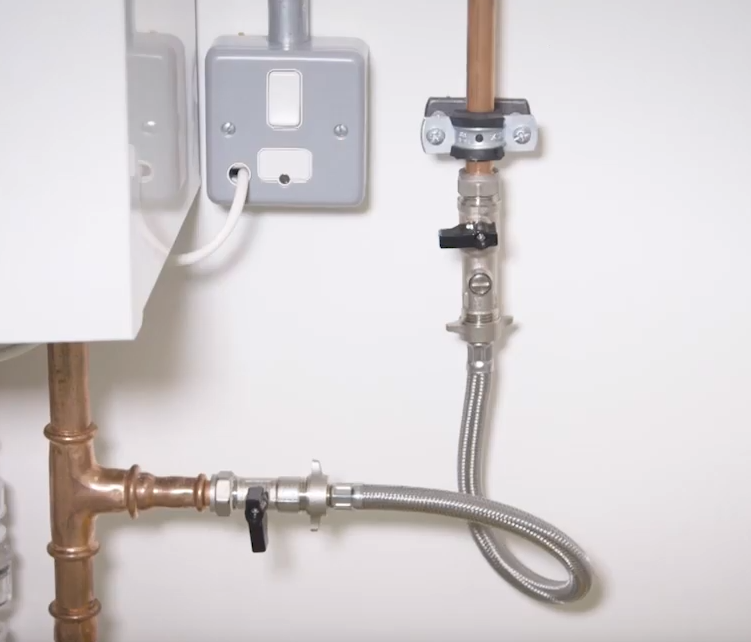Why Is My Boiler Pressure Low?
Most Homeowners at some stage will have experienced low boiler pressure and having an error code appear on the display but they don’t know what to do. Fear not as in this guide, we will give you the most common causes for your low boiler pressure and in some cases how you can fix it yourself or whether you need to call out a qualified heating engineer.
Common Causes of Boiler Pressure Loss
A leak in your heating system: This could be the reason for low boiler pressure but in some cases it can be really difficult to locate. It could be something visible such as a radiator valve that is leaking that will cause your boiler to lose pressure or in a worst case scenario, it could be a leak in one of the pipe joints under the floor. In this case, you would need to call out a qualified heating engineer to fix your low boiler pressure..
Expansion Vessel Problems: If you have low boiler presure it could be because the expansion vessel is faulty. The expansion Vessel has the job to take up the expansion in your heating system as you are using your boiler.
If the expansion vessel is faulty it damages the pressure relief valve that regulates the water pressure in your boiler. A symptom would be you seeing water drip out from the pipe outside your house.
Air in the system: The low boiler pressure could be caused by something simple as just having air trapped in your radiatiors. In this instance, all you would need to do is add water into your heating system via the filling loop (inside the green zone) then bleed the radiators that have air in them.
Once the air has been removed, there will be water coming out the vent hole so don’t forget to get a rag to bleed the radiators to catch the water.
Leaks Inside The Boiler: You have low boiler pressure and you have to keep topping up the water pressure in the boiler but you don’t know why. This is not something that you would visually be able to see if there is a slight leak at one of the joints.
You could also possible have a slight drip at the the pump which could cause low boiler pressure but not enough for the eye to see. In this instance, you would need to call a qyualified gas engineer to look into this problem for you.
How To Check Boiler Pressure
Start by checking the pressure guage. Some boilers have a hydraulic pressure guage outside the boiler or on the front of it, however, some of the newer boilers only have a digital display so you would need to refer to the user manual to see how to check the boiler pressure.
There is a green coloured indicator on the pressure guage which is where the boiler pressure should be kept. There is also a red coloured indicator which means that if the dial is in this zone, your boiler pressure is too high and you might have a faulty pressure relief valve or expansion vessel.
If your boiler pressure is going into the red zone, you will need to call out a gas engineer to have them diagnose the problem.
How To Repressurise Your Boiler
First of all refer to your user manual as every boiler is different so refer to manufacturers instructions. Some manufacturers also put instructional videos on their website so you could also use these useful tips.
Here are some basic steps if you have an external filling loop with a braided hose:
Switch off your boiler and let it cool
Attach the filling loop to the connectors and ensure it is screwed in correctly
Then firstly open the valve lever attached to the heating pipe then slowly open the lever aatched to the cold water mains and fill until the reading is in the green zone (approximately 1.5 bar)
Next close both lever valves and remove the filling loop and screw the stop ends back on.
Turn the boiler back on. You may need to press the reset button depending on the make of the boiler.
Keep the filling loop in a safe place.
If your boiler has an auto fill:
Switch off the boiler and let it cool.
Put your fingers on the lever valve under the boiler(normally coloured either green or blue) and fill slowly until the boiler pressure is in the green zone (around 1,5 bar).
Release the lever valve and the water should stop going into the heating pipe.
Turn the boiler back on. Again, you might need to press the reset button depending on the make of the boiler.
What to Do If Your Boiler Keeps Dropping Pressure After Topping Up?
If your still have low boiler pressure after topping it up, you most definitely have a bigger issue that needs attention. The only thing that you would be able to do would be to visually check radiator valves for any sign of leaks. If this is not the case, call a heating engineer to come and diagnose the issue.
Common Boiler error Codes For Low Pressure
Worcester Bosch: 1017W
Baxi: E119
Vaillant: F22
Ideal: F1
Navien: E302
FAQ’s
How often should i have to top up my boiler pressure?
It is normally no problem if you have to top up your boiler pressure a couple of times per year. However, if you are finding that this is a regular occurance, you will need to contact a heating engineer.
Will bleeding radiators help the loss in pressure in my boiler?
No, bleeding radiators will only cause the pressure to drop even more.
Is it dangerous if my boiler keeps losing pressure?
The short answer is, NO. Sometimes heating systems have small leaks which can be difficult to detect. The only instance that could cause you an issue (but not dangerous) would be if the leak was not visible to the eye and left unattended it could be leaking under a floor, this could leave a big puddle of water. This is why it is vitally important to contact a heating engineer to diagnose tyour low boiler pressure..
Conclusion
Kow boiler pressure is a coomon thing in the UK but not something that you should be overly concerned about.
Boiler pressure does drop and if it is only occasionally, this should not be any concern to you. Having larger and more frequent pressure drops should be of concern and you should contact your local engineer to come and diagnose the low boiler pressure.
Depending on the cause of the pressure drop, you might be able to fix it yourself by simly topping up the pressure to the correct level.
Getting your boiler service annually would be a great way to prevent your boiler having any unexpected issues. It’s for peace of mind and less expensive than leaving it until something breaks.
For more information you can click on this link: www.worcester.co.uk
[fluentform id=”9″]


